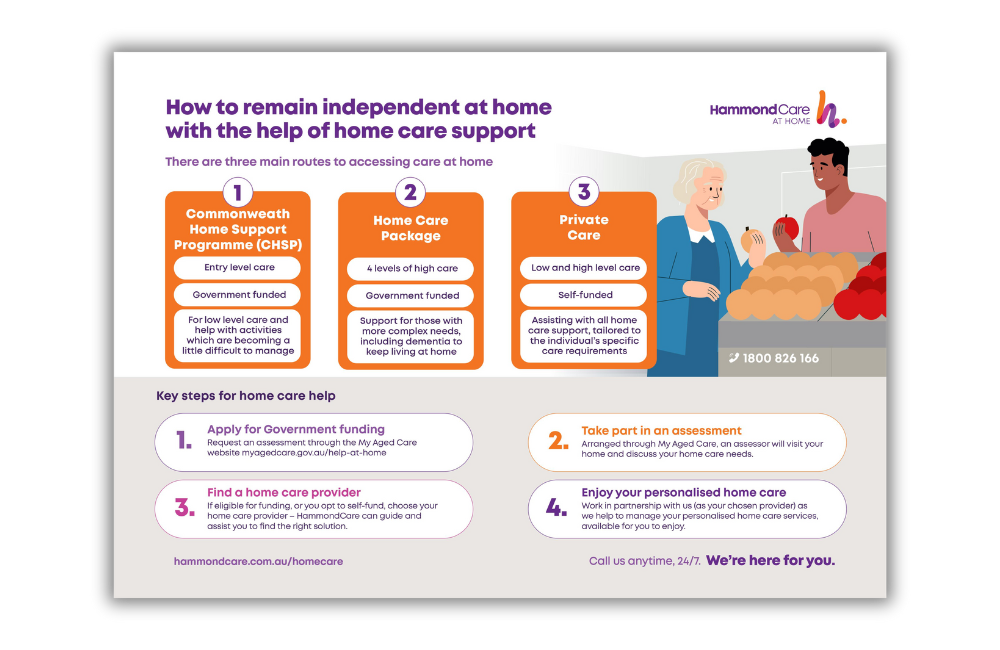Everything About Home Care Providers for Individuals With Disabilities: NDIS Registered Assistance
Home care services under the NDIS play a crucial function in supporting individuals with specials needs. These solutions are made to enhance everyday living via tailored help, ranging from personal like wheelchair support. Comprehending just how to browse these choices can be intricate. This review checks out the various elements of NDIS home treatment, from offered services to the choice of suppliers, highlighting important considerations for those seeking support. The trip towards encouraged care begins here.
Comprehending the NDIS and Its Objective
The National Impairment Insurance Coverage System (NDIS) works as a transformative structure developed to give assistance and services for individuals with handicaps. Established to improve the high quality of life and warranty equitable accessibility to crucial sources, the NDIS empowers individuals by using personalized strategies customized to their one-of-a-kind demands. It intends to cultivate independence, making it possible for individuals to seek their individual goals and aspirations.Through a structured method, the NDIS allots financing for various supports, consisting of education and learning, employment help, and community participation. This all-encompassing scheme not just concentrates on prompt treatment but also highlights long-lasting developing results. By promoting selection and control, the NDIS motivates participants to select their recommended solution suppliers, guaranteeing that treatment straightens with their preferences and worths. Eventually, the NDIS represents a considerable commitment to boosting the lives of people with disabilities, promoting inclusivity, and developing an extra encouraging society.
Sorts Of Home Care Solutions Available
Various kinds of home treatment services provide to individuals with impairments, mainly concentrating on individual care aid and respite treatment choices. Personal care support gives crucial support with day-to-day activities, while reprieve care supplies temporary alleviation for key caretakers. Recognizing these solutions is essential for making sure the wellness of both people with impairments and their households.
Personal Treatment Aid
While steering every day life can present challenges for individuals with specials needs, individual treatment aid provides vital support tailored to their unique needs. This kind of home treatment service includes a variety of tasks developed to promote independence and boost lifestyle. Individual treatment aides assist with everyday jobs such as bathing, dressing, brushing, and toileting, making sure people preserve personal hygiene and convenience. They might also help with meal prep work, medicine administration, and movement assistance. By offering personalized treatment, these experts empower people to involve more completely in their daily regimens and social tasks. Overall, individual treatment assistance plays a considerable duty in promoting dignity and autonomy for those with impairments, allowing them to thrive in their home setting.

Reprieve Treatment Options
Respite care acts as an essential source for households and caretakers of people with disabilities, offering short-lived relief from the demands of day-to-day caregiving. This sort of service can take numerous kinds, including at home break treatment, where qualified experts go to the home to assist with care jobs. Households may opt for facility-based break care, where individuals get care in a specialized environment, permitting caretakers to take a break. Furthermore, some organizations supply emergency situation break services for unanticipated conditions. These options not only help minimize caregiver tension yet additionally promote the wellness of individuals with impairments by supplying them new experiences and social communication. In general, break treatment plays a vital role in supporting both caretakers and those they take care of.

How to Gain Access To NDIS Home Treatment Providers
Accessing NDIS home care solutions includes comprehending the eligibility standards established forth by the National Impairment Insurance Coverage Plan. Individuals should navigate a structured application process to secure the necessary assistance customized to their requirements. This section will certainly clear up both the eligibility requirements and the actions associated with getting solutions.
Qualification Standards Clarified
To get approved for NDIS home treatment services, people must satisfy certain qualification criteria that examine their conditions and needs. First, applicants need to be aged between 7 and 65 years and have a long-term and significant handicap that affects their capability to perform daily tasks. Furthermore, they need to be an Australian person, a permanent citizen, or hold a Protected Unique Category Visa. The NDIS needs evidence of the impairment, normally via clinical evaluations or reports. People need to show that they call for assistance to participate in financial and social life. These requirements assure that solutions are guided towards those who really need help, advertising self-reliance and enhanced quality of life for people with handicaps.
Application Refine Steps
Can I Select My Own Assistance Workers Through NDIS?
The private inquired whether they can choose their own assistance workers under the NDIS framework. Typically, individuals have the versatility to pick support employees, fostering personalized treatment that lines up with their certain needs and choices.
What Happens if My Demands Modification After Obtaining Assistance?
If an individual's requirements change after receiving assistance, they should connect these changes to their solution company. Changes can be made to the care strategy, making sure that the support continues to be appropriate and reliable for their conditions.

Are There Limits on The Number Of Hours of Care I Can Obtain?
The specific asked about potential restrictions on the variety of care hours obtained. Typically, such limits may exist based upon particular plans or funding arrangements, emphasizing the relevance of examining guidelines and agreements consistently.
Can I Make Use Of NDIS Funding for Home Alterations?
The concern of using financing for original site home modifications develops regularly. Typically, people may make use of NDIS funding for essential adjustments to their homes, ensuring accessibility and safety and security, contingent upon conference details eligibility criteria and standards.
Just how Do I Deal with Problems Concerning My Home Treatment Services?
To resolve grievances concerning home treatment services, individuals must initially document their worries. They can connect straight with their solution copyright, seeking resolution, or rise the problem to pertinent oversight bodies if needed. Home care solutions under the NDIS play a critical function in sustaining individuals with specials needs. Numerous kinds of home treatment solutions provide to people with disabilities, mainly concentrating on individual treatment support and reprieve care choices. support at home provider. Individual care help offers important support with everyday activities, while respite care provides short-term relief for main caregivers. Families may decide for facility-based reprieve care, where individuals receive care in a specialized environment, permitting caregivers to take a break. How can families effectively take care of the economic elements of home care solutions for people with specials needs?